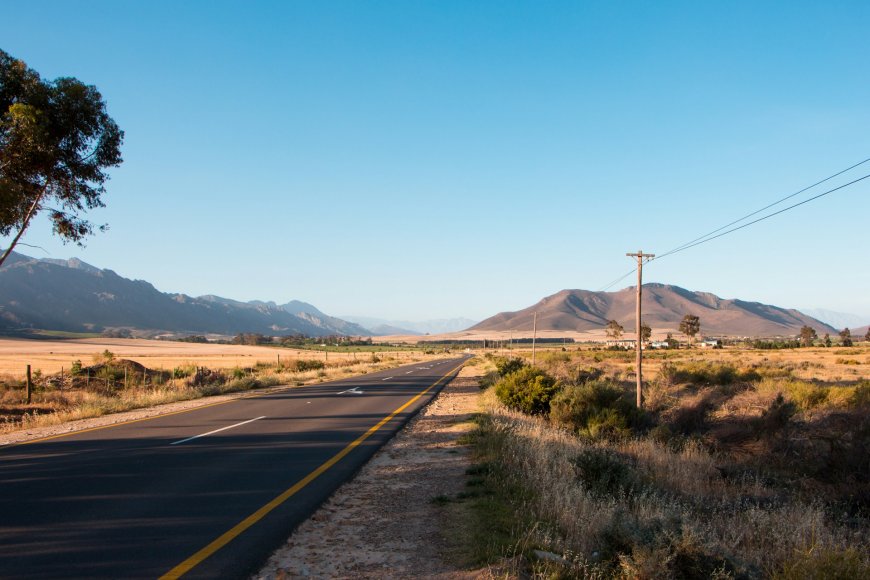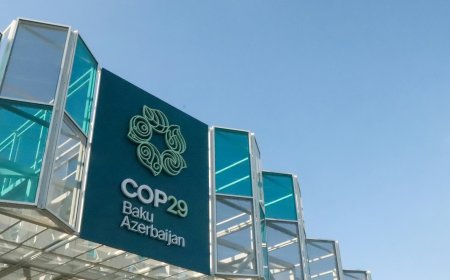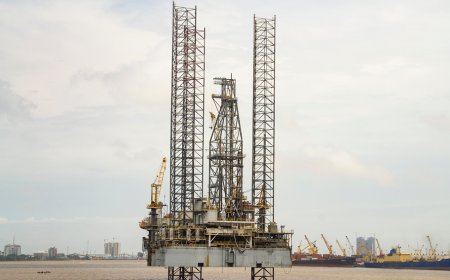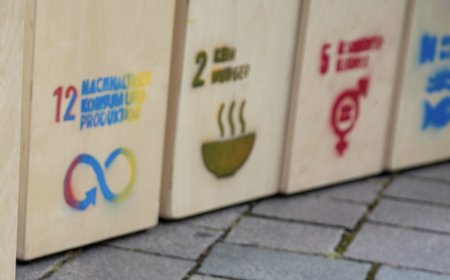On January 24th, 2025, APRI - Africa Policy Research Institute and Robert Bosch Academy organised a workshop for academics, policymakers and civil society practitioners on the intersection of gender injustice with the forces of economic inequality and climate change. This blog highlights the key outcomes of this workshop.
With 2025 well underway, the year marking the 30th anniversary of the Beijing Declaration and Platform for Action, we must confront a sobering reality: Despite decades of advocacy, gender disparities remain deeply entrenched across societies. Adopted at the Fourth World Conference on Women in 1995, the Beijing Declaration remains a landmark international commitment to advancing women's rights and gender equality across key areas such as education, healthcare, economic empowerment and political participation. Alongside it, the Sustainable Development Goals (SDGs) also set global targets for gender equality and climate action, but with 2030 only five years away, systemic, structural and financial barriers continue to slow the meaningful progress and full realisation of this vision.
Over the past three decades, governments, civil society organisations and international institutions have implemented a range of policies and initiatives to promote gender equality. Significant milestones include greater access to education for women and girls, legal reforms addressing gender-based violence and increased political representation of women in leadership roles. For instance, since 2015, 50 million more girls have enrolled in school, and 155 countries have enacted domestic violence laws, with 140 nations implementing workplace harassment protections. However, progress has been slow and uneven. One in ten women lives in extreme poverty, and 73.5% of women in wage employment lack social protection globally. Limited access to healthcare and persistent underrepresentation in decision-making roles remain major obstacles to achieving full equality. The COVID-19 pandemic exacerbated these disparities, disproportionately impacting women’s employment and security. Between 2019 and 2020, women’s employment declined by 4.2%, with 54 million jobs lost worldwide. Simultaneously, unpaid care burdens intensified due to school closures and increased healthcare demands, further restricting women’s participation and well-being.
Compounding these challenges, the climate crisis has deepened existing gender inequalities, with women, especially in the Global South, bearing the brunt. For example, women account for 80% of those displaced by climate-related disasters, as they are more likely to rely on climate-sensitive livelihoods such as agriculture, fisheries and forestry. Additionally, resource scarcity disproportionately affects women and girls, who are often responsible for collecting water and fuel. In drought-stricken regions, they must travel longer distances to secure these essential resources, increasing exposure to health risks and violence. Climate-stressed environments are also driving a surge in gender-based violence, with reports of child marriage rising in climate-affected areas, as families facing food insecurity resort to marrying off daughters in exchange for resources.
Despite the clear links between gender inequality and climate vulnerability, climate action and gender justice remain largely siloed in policy agendas. This gap persists even as mounting evidence shows that women's leadership and participation in development and climate solutions drive more effective and sustainable outcomes. The workshop participants highlighted the need for a holistic approach to tackling gender, economic and climate injustices. It emphasised that these issues are interconnected and must be addressed as pillars of a just transition.
Beyond the surface: challenging structural inequalities in gender
Economic, climate and gender injustices are deeply intertwined and rooted in structural inequalities that dictate who holds power, who controls resources and whose labour is valued. One of our participants highlighted that women’s exclusion from decision-making and job markets has long been justified by their reproductive roles, reinforcing the belief that they are ‘naturally’ better caregivers but less suited for leadership. These gendered assumptions shape labour markets worldwide and influence climate policies, which often sideline women in crucial discussions on mitigation, adaptation and green transitions.
Climate change creates injustice and amplifies existing inequalities. Women are expected to ‘step up’ during a crisis such as a climate disaster or an economic collapse, shouldering care work, rebuilding communities and providing stability. Yet, when they need support, they are often excluded from post-disaster recovery efforts and denied resources, training and economic opportunities. These disparities are even more pronounced in the Global South, where systemic barriers already limit women’s financial security. For instance, after the 2010 floods in Pakistan, many women faced restricted access to humanitarian aid due to financial constraints, social norms limiting their movement and the lack of national identification cards (NICs), a prerequisite for official relief. Technical climate solutions alone will not fix these injustices. Expanding renewable energy access, for example, does not inherently lead to gender equity. As one of the workshop participants highlighted, when Indigenous communities in Mexico adopted wind farms, men controlled the economic benefits while women faced harassment and exclusion from decision-making. These inequalities are not incidental; they stem from entrenched systems of oppression: colonial legacies, capitalism and patriarchy. A just transition cannot be built on the same foundations that created exclusion in the first place. Unless these structures are dismantled, climate action will only reinforce the very injustices it claims to solve.
Gender norms do not only influence personal choices, they shape policies, economic structures and access to climate resources. Addressing gender inequality requires more than token inclusion, it demands a radical restructuring of economic and financial priorities, political representation, and climate justice strategies. Women must be central to the conversations on economic and climate solutions. In their role as leaders shaping the future, they are essential.
From inequality to opportunity: why gender equity drives climate resilience and wealth creation
The fight for climate resilience and wealth creation is incomplete without gender equity. Women are not just victims of climate change, they are innovators, entrepreneurs and leaders capable of driving transformative solutions. Yet, they remain excluded from shaping the policies and industries that define our collective future. Studies show that when women control financial resources, they reinvest in families and communities, strengthening long-term stability and sustainability. In India, for example, self-help groups led by women have created sustainable enterprises that provide employment and financial independence for thousands of women, transforming rural economies. The same holds for climate action. Research shows that countries with greater female representation in parliament are more likely to ratify international environmental treaties and implement stronger climate policies. Similarly, after a series of earthquakes in Mexico in 2017, women’s groups played a key role in rescuing and rebuilding communities. Yet, their contributions often go unrecognised, despite evidence that gender-inclusive leadership leads to deeper, more sustainable outcomes.
Gender equity is not just a human rights issue, it is an economic necessity and a key driver of societal wealth creation, stability and climate resilience. Research suggests that closing gender gaps in education and skills could add USD 10 trillion to the global economy, while investing in the care economy could create nearly 300 million jobs. Yet, women remain concentrated in low-wage, informal and precarious jobs, earning 24% less than men globally. At the current rate of progress, it will take 170 years to close the gender pay gap. The digital gender divide exacerbates economic inequality. Bridging this divide alone could save over USD 500 billion. These figures highlight that failing to integrate gender equity into economic policies is not only an injustice. It’s a missed opportunity for global prosperity.
Achieving this requires more than simply increasing women’s participation. For too long, the transition to a greener economy has focused narrowly on infrastructure, technology and finance, neglecting the fundamental question of who benefits. Without intentional efforts to break gender barriers, a just transition risks replicating the same inequalities that have long defined traditional industries. Women, particularly in frontline communities, must be equipped with the skills, resources and decision-making power to lead the just transition agenda. To fully realise the benefits, however, we must look beyond inclusion and rethink the structures that shape economic and climate policies. This requires shifting the conversation from isolated interventions to systemic change.
Reframing the debate: the need for a holistic approach
Too often, climate justice is discussed in isolation from social and economic justice, with gender treated as an afterthought. Yet the crises are deeply interconnected. Failing to recognise this only reinforces existing inequalities. As one of our participants noted, during the floods in Germany, emergency response plans were unable to consider poorer, disabled and elderly populations. This highlights how, even in well-resourced economies, vulnerable communities are often left behind. The consequences are even more severe in regions with fewer resources.
Women’s rights movements have historically focused on gender oppression. However, not all women experience discrimination in the same way. Adopting an intersectional lens is therefore crucial for women’s equality, well-being and a just transition as it recognises that different groups of women experience multiple, overlapping forms of discrimination, each of which shapes their opportunities, access to resources and decision-making power in distinct ways. Factors such as race, class, ethnicity, disability, sexuality, age and migrant status compound the barriers they face, demanding more nuanced and inclusive solutions. For instance, as a participant highlighted, gender still limits economic opportunities for advantaged women; the first woman only appears on global rich lists after sixteen men, reflecting barriers to wealth accumulation. Meanwhile, marginalised women face the greatest risks, as intersecting inequalities further deepen their economic precarity and climate vulnerability.
Reframing the debate requires shifting from surface-level inclusion to systemic transformation. This means actively addressing intersectional barriers rather than assuming all women face the same challenges. To create meaningful change, all stakeholders must embrace intersectionality by:
- Addressing diverse needs: A one-size-fits-all approach to gender equality and climate action is ineffective. Policies must be tailored to the specific realities of women facing economic, racial and environmental disadvantages.
- Preventing further marginalisation: Without holistic awareness, policies risk benefiting only privileged groups, further entrenching inequality.
- Building inclusive movements: True progress requires diverse representation. However, we need to recognise that economic marginalisation exacerbates the effects of marginalised identities.
- Transforming structural systems: Justice is not about mere inclusion but dismantling an economic system that perpetuates inequality across gender and climate policies.
If we continue with business as usual, by 2025, women will still be fighting for basic survival instead of progress. A just transition must go beyond net-zero targets and renewable energy. It requires redistributing power, ensuring economic security for those most affected and dismantling the very structures that have excluded women for centuries. This is essential for ensuring that no one is left behind.
Finding solutions: the pathways to a gender-just transition1
The solutions to these challenges are within reach. Fair wages, land rights and decision-making power are not distant ideals but tangible steps that can reshape economies and communities. The question is no longer whether gender justice should be central to climate action, but how quickly we can scale the solutions that already exist. The workshop discussions underscored this urgency, highlighting some key pathways for a just and sustainable future:
- Care is at the heart of a just transition. While unpaid and underpaid care work, primarily carried out by women, contributes to the capabilities that create wealth and are at the heart of a well-being economy, it remains invisible in current economic models. A just transition must recognise, redistribute and reward care work as essential to a sustainable future. This requires significant investment in universal childcare and elder care, and policies such as paid family leave and flexible work arrangements.
- Social protection is essential for building resilience. It enables people to break cycles of poverty and exclusion, prepare for and withstand crises, recover from shocks, and build a sustainable future. Universal social protection provides a safety net, empowering women and vulnerable groups to secure their well-being and plan for the future. Strengthening these protections fosters greater equity and long-term sustainability for current and future generations.
- Global climate finance and economic systems must be reimagined. The world’s wealthiest 1% own 76% of global wealth, yet climate finance mechanisms continue to burden the Global South with debt rather than holding historic polluters accountable. Redistributive justice must be at the core of climate action. Corporations must be held accountable. Wealth and progressive taxation and gender-just climate finance must be employed to redistribute resources fairly.
- Transnational/transregional solidarity is key to systemic change. To shift from a lose-lose to a win-win approach, we must build alliances that connect movements across borders, from women's rights to climate justice. This also includes mobilising men who feel left behind by economic transitions, investing in intergenerational learning and ensuring the voices of the most excluded – those at the bottom of the socio-economic hierarchy – are empowered to shape climate policy, rather than merely respond to it.
- The role of the state is critical in building a just future. States must take an active role in driving policies that promote justice and sustainability, strengthening civil society, and supporting excluded communities. This includes building societal will, forging alliances with CSOs, excluded voices and grassroots movements, and amplifying the voices of marginalised groups, whether in cities, neighbourhoods or rural areas.
Achieving these pathways requires more than fragmented policy changes; it demands a systemic shift in how power, wealth and resources are distributed. Governments and institutions must go beyond commitments and take decisive action to ensure a just transition.
Acknowledgements
I sincerely thank all our participants, whose insightful discussions and reflections played a key role in shaping this blog. A heartfelt thank you to Dr Grace Mbungu and Prof Naila Kabeer for initiating and organising the workshop, and for their guidance, timely reviews and feedback on the earlier drafts of this blog. Special thanks to Lisa Jörke (Klima-Allianz Deutschland), Saamah Abdallah (Hot or Cool Institute) and Trisha Kershaw (APRI) for contributing to the workshop notes that helped inform these ideas. Thanks to Pradnya Bivalkar and Bag Bilal for organising and moderating the workshop. I am also grateful to APRI and the Robert Bosch Academy for the opportunity and support to work on this piece.
Endnotes
[1] Kabeer, N. (forthcoming). Gender justice and the wellbeing economy: concepts, findings and transitional pathways. Paper prepared during her Fellowship at the Bosch Academy
About the author
Swetha Covaiselvan
Swetha Covaiselvan is a Project Intern with the Climate Change Program at APRI. She holds a Master’s in Public Policy from the Hertie School in Berlin, a Postgraduate Diploma in Environment and Sustainable Development from IGNOU and a Bachelor’s in Commerce from India. Swetha’s expertise lies in policy analysis, with a strong focus on climate policy and sustainable and inclusive development. She previously worked at Endeva, developing inclusive business reports for UN ESCAP.




